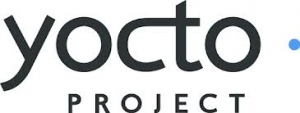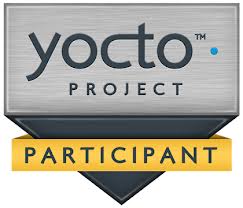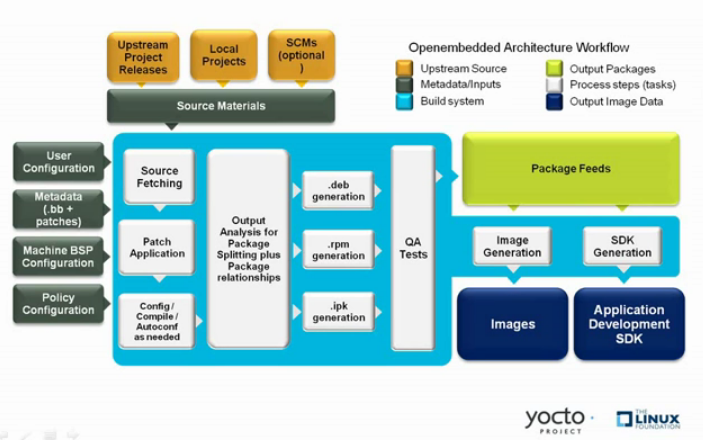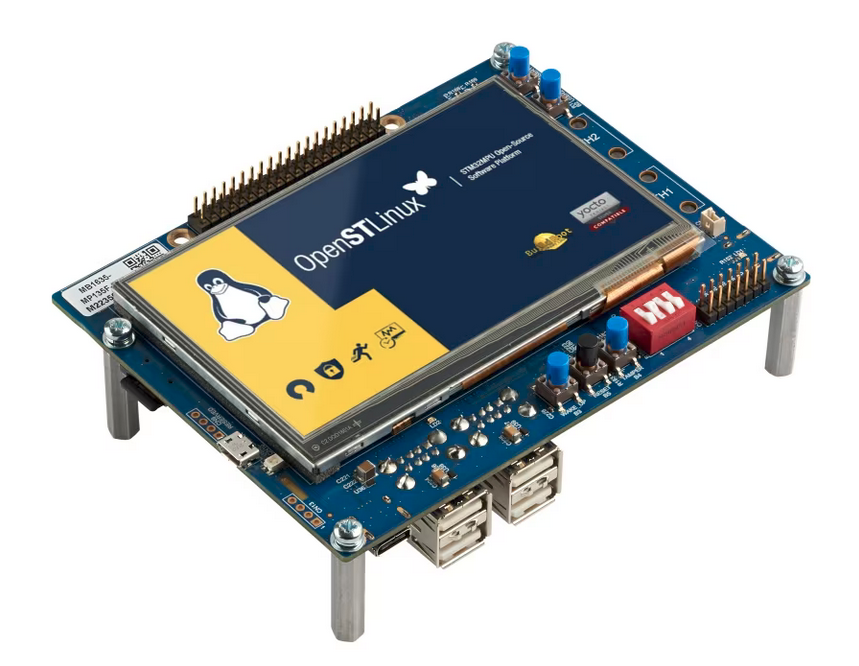What Yocto Project is?
The Yocto Project is an open source initiative that provides tools, methods, and a complete platform for creating custom Linux operating systems for embedded devices. It is supported by the Linux Foundation and is used by developers and companies to create Linux distributions tailored for specific hardware, such as microcontroller boards, systems on chips (SoCs), and other embedded devices.

Yocto Project in detail
Yocto Project Key Features:
- OpenEmbedded Core: This is the heart of the Yocto Project. It is a collection of metadata and recipes that define how to compile packages and build an entire Linux distribution. It uses the build system called BitBake.
- BitBake: A build tool that coordinates the compilation of packages and manages dependencies between them. BitBake is similar to a build system like Make, but is optimized for creating complete operating system images.
- Portability: Yocto is designed to be extremely flexible and portable. It can be used to create Linux distributions for a wide range of hardware architectures, such as ARM (32/64bit), x86 (32/64bit), MIPS, and PowerPC.
- Customization: Developers can create highly customized Linux distributions by choosing exactly which packages to include or exclude, configuring system parameters, and optimizing for specific hardware needs.
- Layering: Yocto uses a system of “layers” to organize metadata and recipes. Each layer can add, overwrite, or modify system components, allowing for easy extension and customization of the project without interfering with other layers.
- Community and Industrial Support: Yocto is widely supported by an active community, as well as by many large companies in the embedded industry.
In summary, the Yocto Project is a powerful and flexible tool for developing embedded Linux systems, used primarily in the industrial, automotive, and Internet of Things (IoT) device sectors.
How Yocto Project works in a nutshell
The Yocto Project works as a platform for creating custom Linux distributions for embedded systems, using a combination of tools, metadata, and a build system called BitBake. Here’s how the process works, step by step.
1. Project structure
- Metadata: The heart of Yocto is metadata, which includes recipes, configurations, and layers. This metadata defines how to build packages, configure the system, and manage dependencies.
- Layers: Metadata is organized into layers, which can be thought of as “layers” of functionality. Each layer can add new packages, configurations, or changes to existing ones.
2. BitBake: the build system
- BitBake is the build tool used by Yocto. It works similar to make, but is much more powerful and flexible. BitBake reads recipes (.bb files) that describe how to build each package and instructions on how to combine them to create a complete Linux distribution.
- Recipes: A recipe specifies how to compile a software package. It includes information such as the source code, dependencies, build and installation commands, and patches to apply.
3. Build configuration
- Machine Configuration: Defines the hardware characteristics of the target device, such as CPU architecture, memory type, and other hardware specifications.
- Distro Configuration: Defines aspects of the operating system such as security policies, base packages to include, and system defaults.
- Image Configuration: Specifies which packages to include in the final operating system image, such as development tools, libraries, and applications.
4. Build process
- Preparation: Once the configurations are defined, BitBake begins the build process. First, it collects all the necessary dependencies, downloads the code sources, applies patches, and prepares the build environment.
- Compilation: BitBake compiles the sources into binary packages, respecting the configurations specified in the recipes.
- Image Creation: After compiling all the packages, BitBake combines the packages into a complete operating system image, ready to be flashed on the embedded device.
5. Output and Deployment
- System Images: The final output of the build process is a system image that can be flashed onto an embedded device. This can include a Linux kernel, root file system, bootloader, and other essential components.
- SDKs (Software Development Kits): Yocto can also generate custom SDKs, which allow developers to build and test applications for their specific distribution.
6. Customization and Maintenance
- Adding New Recipes: If you want to include new software, you can create a new recipe or import an existing one from another layer.
- Editing Layers: Existing layers can be modified to fit the specific needs of your project.
- Updates and Maintenance: Yocto supports update and patch management to keep your operating system secure and up to date.
7. Simulation and Testing
- Yocto also supports tools like QEMU to simulate your embedded system in a virtual environment, allowing you to test your operating system before flashing it onto real hardware.
Workflow summary:
- Project setup (select layers, set configurations).
- BitBake compiles and builds the operating system.
- A system image and/or SDK is generated.
- The image is flashed onto the embedded device for execution.
Yocto is therefore an extremely flexible and powerful system, allowing you to create highly customized Linux distributions for various types of embedded devices, with detailed control over every aspect of the operating system.
Embedded system
An embedded system (or integrated system) is a computer system designed to perform a specific function or a limited set of functions within a larger product. These systems are integrated into the product itself and are often invisible to the end user.
Embedded system characteristics:
- Specific Functionality: Unlike general-purpose computers, such as PCs, which can run multiple applications, an embedded system is designed to perform one or a few specific functions. For example, an embedded system can control the engine of a car, manage the wash cycle in a washing machine, or run the software of a router.
- Limited Resources: Embedded systems often operate with limited hardware resources, such as low processing power, limited memory, and limited storage space. This requires optimization at both the hardware and software levels.
- Reliability and Stability: Because embedded systems are often used in mission-critical applications (such as automotive or medical), they must be highly reliable and stable. They must operate continuously and predictably, sometimes in harsh environments.
- Real-Time Requirements: Many embedded systems must respond to external events in real time. For example, an emergency braking system in a car must react instantaneously to sensor inputs.
- Hardware Integration: Embedded systems are tightly coupled to the hardware on which they run. Often, the hardware is designed specifically for the embedded system and vice versa.
- Energy Efficiency: Many embedded systems must operate with minimal power consumption, especially in portable or battery-powered devices.
Examples of Embedded Systems:
- Automotive: Engine control systems, infotainment systems, ABS systems.
- Home Appliances: Washing machine controls, microwave ovens, smart thermostats.
- Medical Devices: Pacemakers, insulin pumps, vital signs monitors.
- Consumer Electronics: Smart TVs, digital cameras, game consoles.
- IoT Devices: Environmental sensors, smart locks, remote monitoring devices.
Difference with Traditional Computer Systems:
While traditional computer systems, such as PCs, are designed to be versatile and run a variety of applications, embedded systems are highly specialized and optimized to perform specific tasks. This focus makes them ideal for incorporation into products where high efficiency, reliability, and often, low power consumption are required.
References
- Embedded system: https://en.wikipedia.org/wiki/Embedded_system
- Linux embedded: https://en.wikipedia.org/wiki/Linux_on_embedded_systems
- Yocto Project ambassadors: https://www.yoctoproject.org/community/ambassadors/
- Yocto Project documentation: https://docs.yoctoproject.org/
- Yocto Project Wiki: https://wiki.yoctoproject.org/wiki/Main_Page
- Koan wiki for Yocto Project: https://wiki.yoctoproject.org/wiki/Main_Page
- OpenEmbedded: https://www.openembedded.org/
- Bitbake: https://docs.yoctoproject.org/bitbake/
- Training: Yocto Project training course
Yocto Project customization and support
KOAN has adopted the Yocto Project™ since its creation in 2010 and before that using the OpenEmbedded project which is still the basis of the Yocto Project.
KOAN is a consulting and training company specialized in the field of embedded Linux, with a particular emphasis on the Yocto Project. KOAN supports companies and developers in designing, implementing and maintaining Yocto-based solutions, providing deep technical expertise and a customized approach.
The Yocto Project™ is an open source collaborative project that provides templates, tools and methods to create custom Linux-based systems for embedded products independent of hardware architecture. The project was created in 2010 as a collaboration between several hardware manufacturers, open source operating system vendors and electronics companies to bring some order to the chaos of Embedded Linux development.
Yocto Project Participant

Thanks to our contributions to the Yocto Project and our promotional work begun in 2009 with the OpenEmbedded project , KOAN was elected Yocto Project Participant in 2012 by the Yocto Project Advisory Board.
KOAN provides Yocto Project technical support and professional Linux embedded development, consultancy and training services combining the freedom of open source software with the security of full commercial support.


